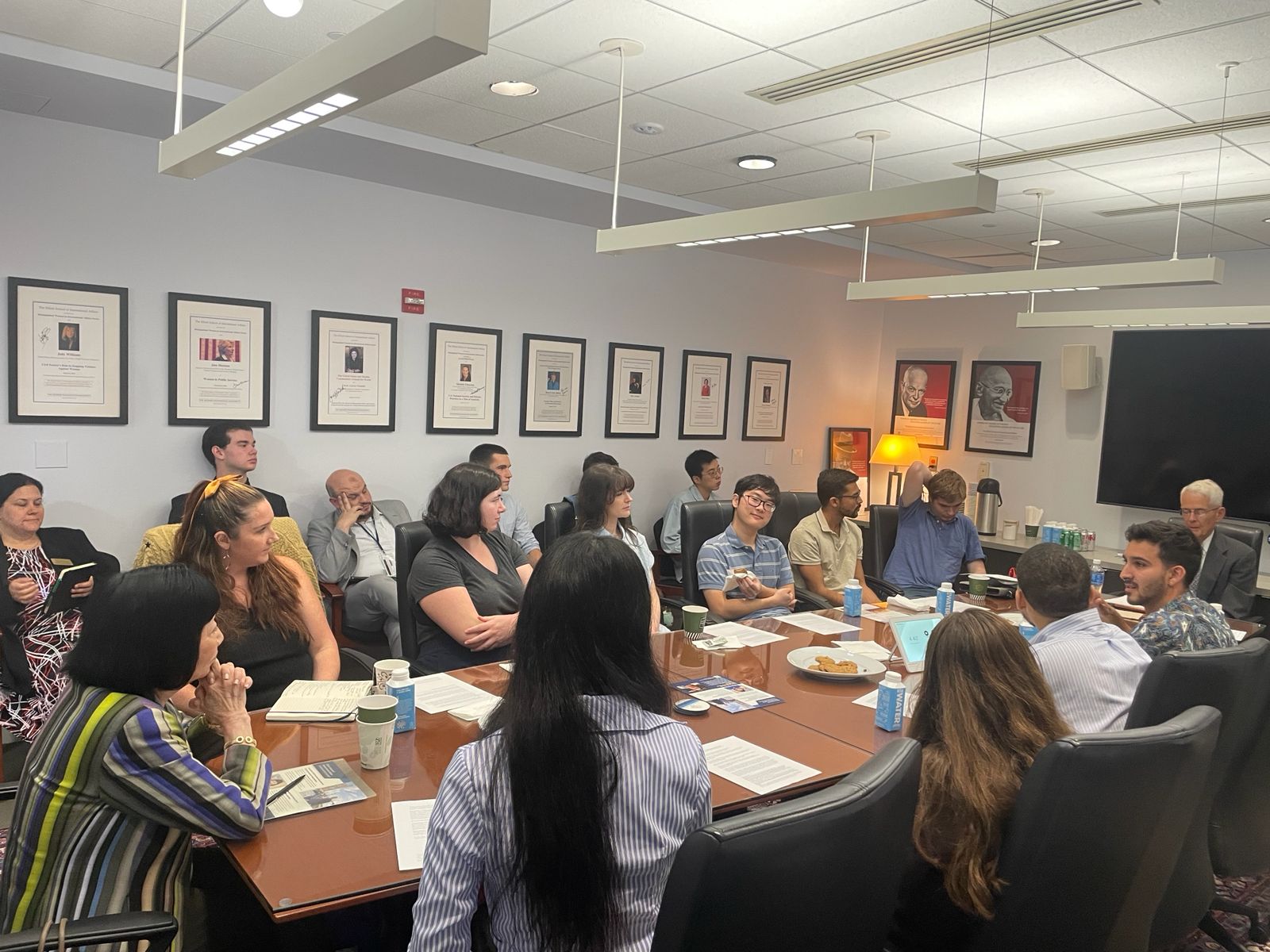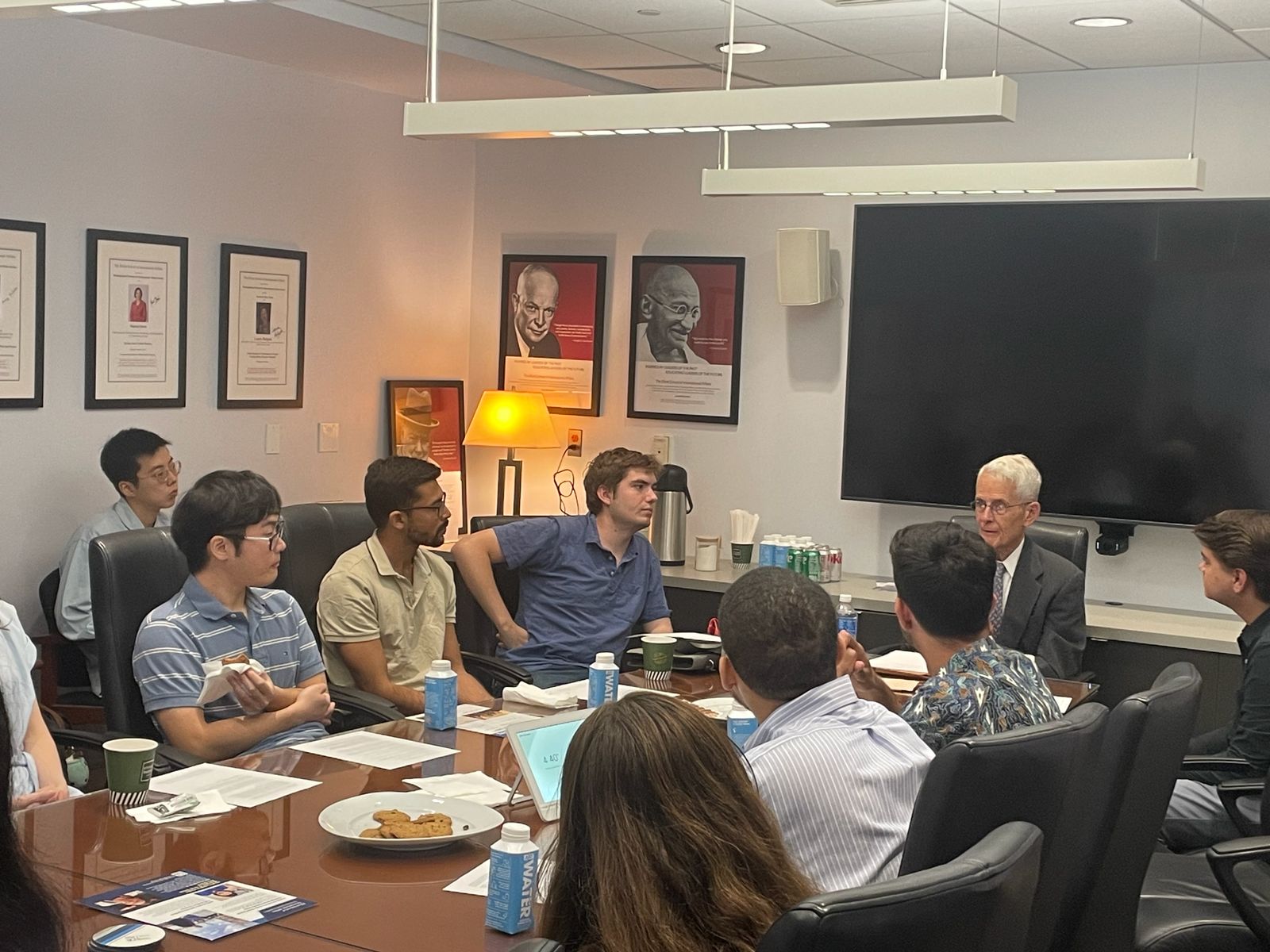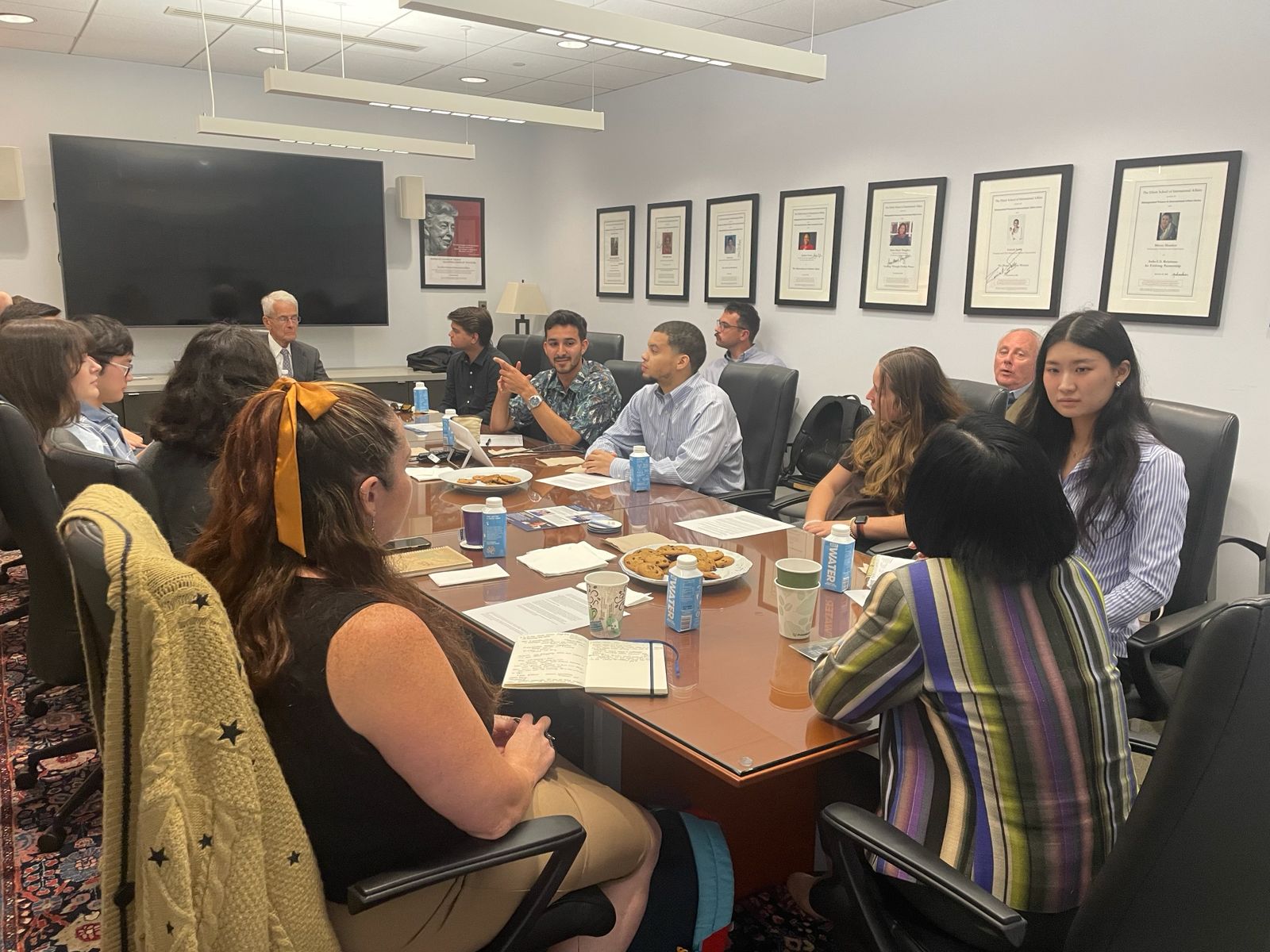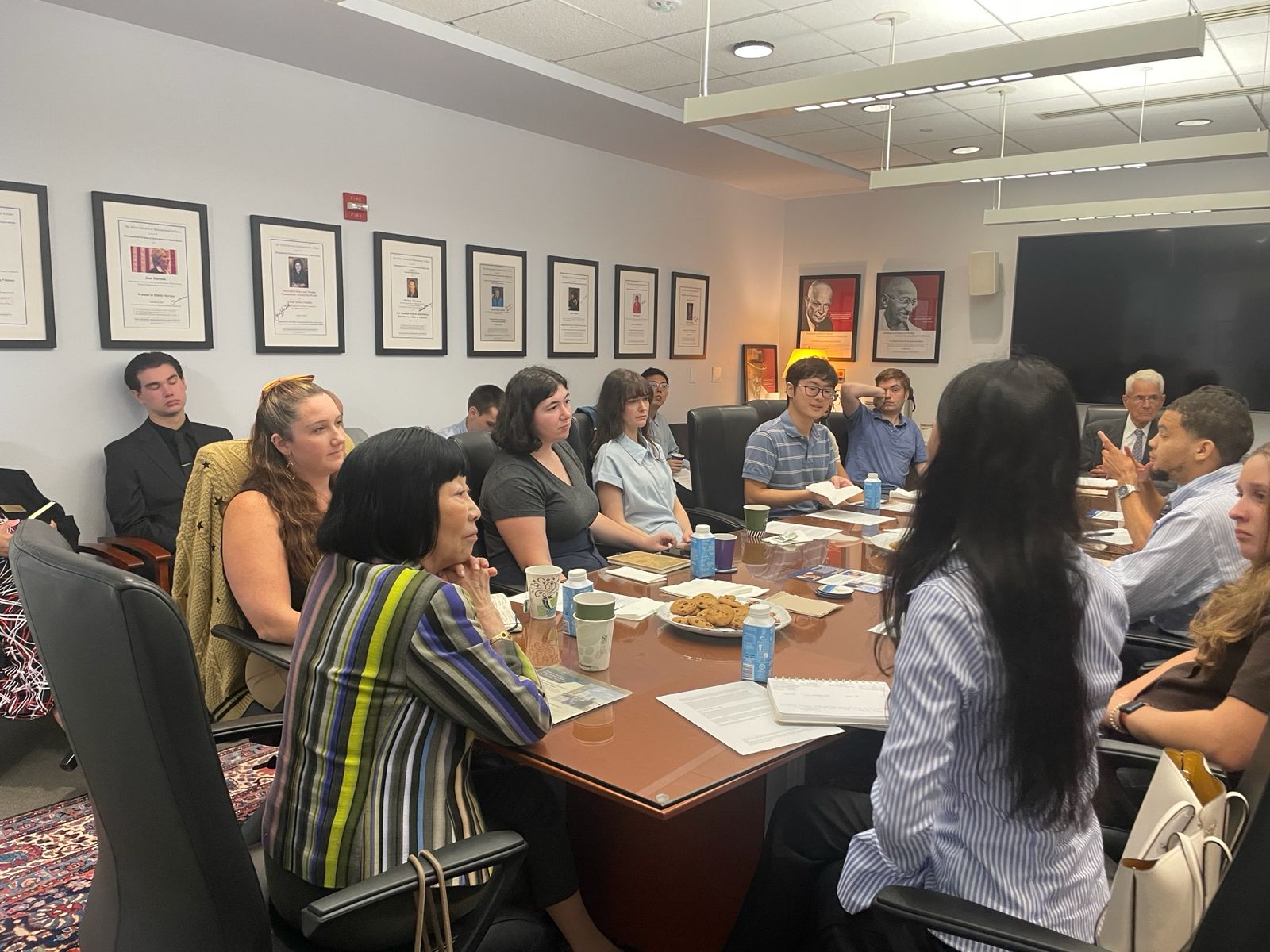
On September 22, 2025, the U.S.-China Education Trust (USCET) and the Elliott School of International Affairs (ESIA) hosted an information roundtable on the Ambassador Julia Chang Bloch (JCB) Fellowships in Asian Studies. Two graduate students at GW will be selected as this year’s JCB fellows. Ambassador Julia Chang Bloch, Dean Alyssa Ayres, Professor Robert Sutter, and students engaged in a conversation on current U.S. engagements in the Indo-Pacific region, the importance of U.S.-China education exchange, and career prospects in Asian Studies and foreign affairs.
Navigating a challenging landscape

Professor Sutter articulated the strategic difficulties of U.S. engagement in Asia, including U.S.-China competition, regional security risks, and the unbalanced trade in the region. At the same time, Sutter reiterated that the U.S. is not seeking to decouple from China; instead, the Trump administration aims to continue engagement on terms set by Washington.
Given these challenges, Ambassador Bloch emphasized the importance of expanding studies of Asia’s politics, culture, and people to support informed policymaking. She stressed that China, as the U.S.’s primary competitor and most critical relationship in the region, deserves particular attention. Yet, she noted, only around 1,000 Americans study in China today, down from 15,000 a decade ago, which signals a sharp decline in on-the-ground expertise. This trend risks fueling misunderstandings, weakening collaboration, and diminishing U.S. competitiveness by eroding a reliable base of knowledge. She sees the JCB Fellowship as a way to help rebuild this bridge.
Discussion with GW students

After introducing themselves, GW students in the room engaged with Amb. Bloch and Prof. Sutter on various topics, which elicited remarkable personal stories and critical analysis of current affairs in the Indo-Pacific region. When asked about advice for joining the U.S. Foreign Service, Amb. Bloch shared her experience in democracy-building in Nepal and her career trajectory from working at USAID to becoming the first Asian American ambassador. She also shared her thoughts on the youth backlash against democratization because of its slow progress and the unresolved corruption in Nepal today.
The students also had a shared interest in U.S.-India relations. Prof. Sutter discussed the topic with respect to President Trump’s unpredictability and China’s presence in the region. He articulated that the Indian government is pragmatic and will need the U.S. despite Trump’s imposition of 50 percent tariffs and India’s recent rapprochement with China, because India has been constantly under China’s economic and security pressure.

Into the future
Amb. Bloch encouraged students to study China and, if possible, to study in China. She highlighted that this is important not only for the sake of American national interests but also to help the students advance their own careers, regardless of the sectors they ultimately enter. She also urged students to make use of the fellowship funds to pursue their own research interests as previous awardees have done across a diverse range of topics.
